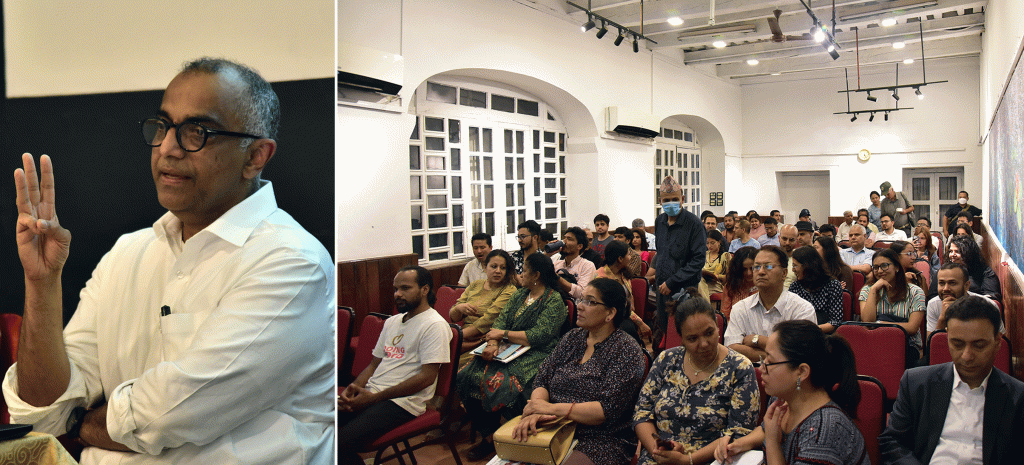Lecture Series
Democratising Democracy

Vijayendra Rao
on
Democratising Democracy
Over the last two centuries electoral democracy emerged as an effective means to solve collective action problems and hold governments accountable to citizens. However, several challenges—from elite capture to corruption, clientelism, and even the increased availability of big data—are putting this system to the test. At the same time, as in the case of Nepal, democracy is evolving to become more local with communities playing a more important role. Opportunities for extra-electoral accountability are increasing, but so is polarisation. Can anything be done to reverse this growing ‘democracy fatigue’?
Drawing on 25 years of work on Indian village democracy, Rao will examine four approaches to reinvigorating democratic systems in developing countries:
1. Direct Democracy
How effective are forms of direct democracy, where collective action is resolved not by counting votes but by consensus building? Rao will present results from analyses of large samples of transcripts of village meetings in rural India—where such meetings are constitutionally sanctioned and fundamental to local government.
2. Performance Incentives:
Can elected representatives be incentivised to perform better? Do financial incentives work better than inexpensive certificates of good performance? Rao will report on the results on a randomised trial in India.
3. Democratizing Data
New methods can empower citizens to analyse and act on their own data. Rao will present tools for democratising data that have been developed in the context of large World Bank projects in India and Indonesia.
4. Comparing Democracy to Autocracy
Using a natural experiment Rao will use a variety of metrics to compare similar villages that are run by elected representatives to those that are bureaucratically run to show the added value of democracy.
* * *
To listen or download lecture in audio format
Vijayendra Rao is a Lead Economist in the Development Research Group of the World Bank who works at the intersection of scholarship and practice. He integrates his training in economics with theories and methods from anthropology, sociology and political science to study the social, cultural, and political context of extreme poverty in developing countries.
Dr Rao’s research has been published has been published in the leading journals in Economics, Political Science, Sociology and Development Studies. His policy work has focused on issues of bottom-up participation, local democracy and gender. He is a Fellow of the International Economics Association, and the Chair of the Advisory Committee of the program on Boundaries, Membership and Belonging, at the Canadian Institute for Advanced Research.
